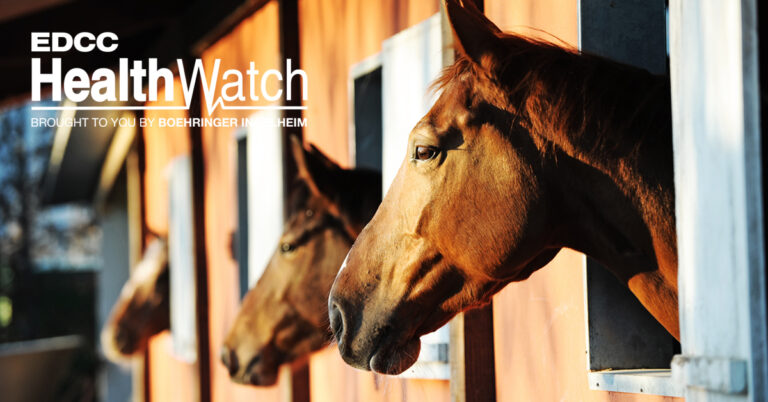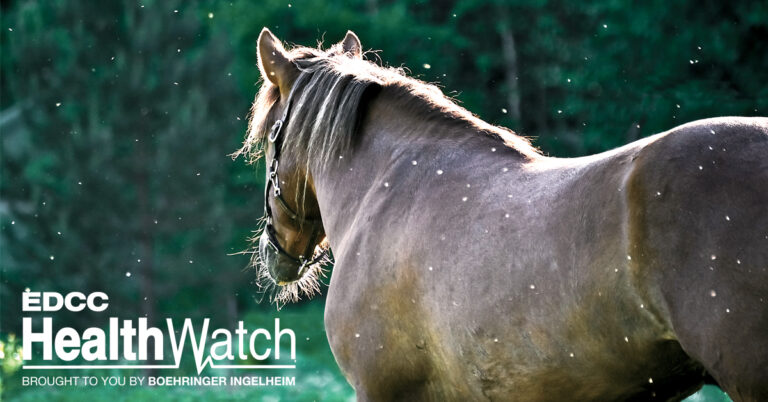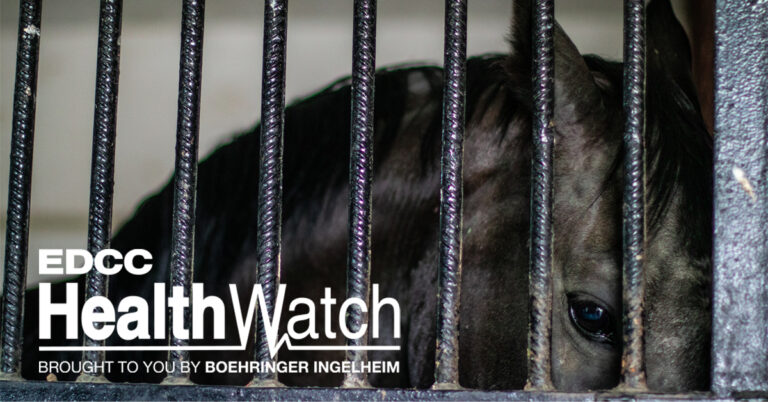
On November 16, a 20-year-old Quarter Horse mare in MRC Haut-Saint-Laurent, Quebec, tested positive for anaplasmosis. The mare developed clinical signs on November 8, including fever, incoordination, and sweating. She has recovered.
EDCC Health Watch is an Equine Network marketing program that utilizes information from the Equine Disease Communication Center (EDCC) to create and disseminate verified equine disease reports. The EDCC is an independent nonprofit organization that is supported by industry donations in order to provide open access to infectious disease information.
About Anaplasmosis
Anaplasmosis is a common, seasonal, non-contagious, tick-transmitted disease observed where the Ixodes tick vector is found. Horses might display acute clinical signs including lethargy, biphasic fever, and reduced appetite. These are often followed by more severe signs, including icterus, limb edema, mucous membrane petechiation, and reluctance to move. Horses usually recover over a two- to three-week period.










